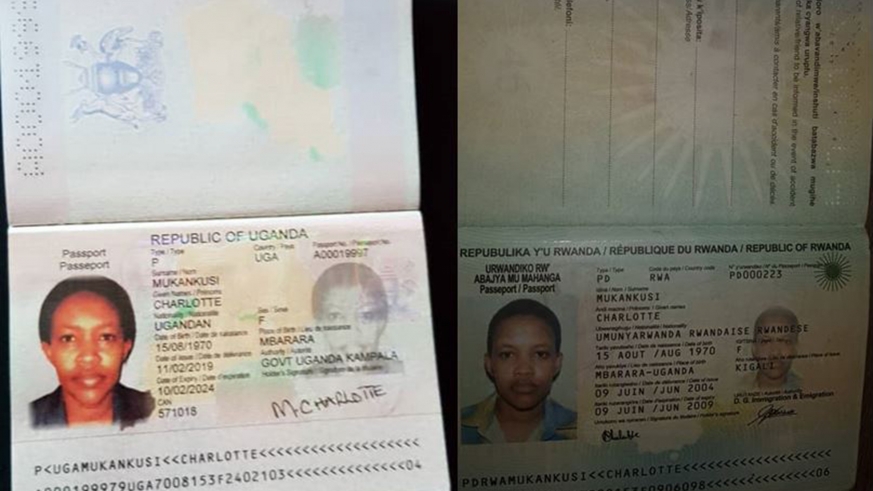

In an article published in yesterday’s Sunday Monitor, Adonia Ayebare, Uganda’s permanent representative to the UN among other things reveals how one time Kampala issued the deceased president of Burundi, Pierre Nkurunziza, with a passport. During his life, the public very much was aware that Nkurunziza was a close ally of Kampala’s. What very few knew – until Ayebare’s article – was how far back Nkurunziza had fallen into Uganda’s orbit. But, given Kampala’s record of seeking to control other countries Ayebare’s revelations only show there’s a greater likelihood that Nkurunziza must have been influenced into taking a Ugandan passport. While Ayebare insinuates the passport was issued to further a noble cause, Uganda’s track record of issuing passports to rogue individuals suggests that the aims aren’t always noble. To mention just the leaders or officials of anti-Rwandan groups that Kampala has given passports, some of the most well-known names include Ignace Murwanashyaka, former president of the genocidal FDLR; Protais Mpiranya, another genocide fugitive (a copy of whose Ugandan passport this newspaper has seen, showing the alias Kakule James, passport No. B 0509922 issued on 29-09-2005); Charlotte Mukankusi, senior RNC official; or Felicien Kabuga, until recently one of the world’s wanted fugitives. All these, and many more, Rwandan terror suspects and genocide fugitives have held Ugandan passports. Some, like Charlotte Mukankusi the RNC "Commissioner for Diplomacy”, were issued Ugandan passports. A copy of it was leaked to the media in March last year, disproving Kampala’s denials that she had one. What "just cause” did Uganda see in her terror plans? Ayebare writes: "Uganda was asked by regional leaders to provide travel documents to Nkurunziza and his rebel colleagues. This was so they would travel for consultations around the region.” That sounds legit, and "in the service of a just cause.” Knowing about the other individuals Kampala has issued its travel documents, this begs practical questions that only themselves can answer. Why did Uganda give Ignace Murwanashyaka a passport, knowing very well what FDLR was – an anti-Rwanda terror group that was an offshoot of the perpetrators of the 1994 Genocide Against the Tutsi? What "just cause” did Kampala think Murwanashyaka – a wanted international criminal – served? Also, when Kampala issued a passport to Maj Protais Mpiranya – a wanted genocide and crimes against humanity wanted fugitive on a USA Rewards for Justice with a $5 million reward for his arrest; and who has an Interpol Red Notice by the UN Arusha based ICTR/IRMC – what "just cause” did Uganda imagine this man was working for? The fact is that Uganda – with an estimated 300 genocide fugitives enjoying safe haven on its territory – long ago made the deliberate decision to work with, and facilitate in all kinds of ways, groups bent on exporting terror to Rwanda and destabilizing it. Kigali has raised complaints, through diplomatic channels, and presented proof in different fora – such as through the framework of the Luanda MoU – for its complaints. One such item of proof, copies of Mukankusi’s passport, was so incontrovertible that Uganda was compelled to come out publicly to state that "the passport had been revoked”. Kayumba Nyamwasa’s RNC is a terrorist outfit whose activities in the recent past include grenade attacks in public places in different parts of Rwanda that between 2010 and 2014 claimed the lives of 17 people and left over 400 with injuries. This is not a group remotely committed to any kind of "good cause”. That Kampala could issue FDLR and RNC top officials with passports; and that it could do the same for all the terror suspects, genocide fugitives and the like is the clearest proof that "just causes” are not Uganda’s concerns.


